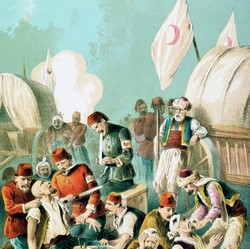The memory of war revised
Memory can work in contradictory ways. One's recollection of a specific event from the past can vary in detail from another's. This is even more the case when it is collective memory across cultures regarding political events such as the Russian-Ottoman War (ROW) of 1877-1878. National narratives of the nations involved in the ROW are woven through contradicting official cultures of memory. As such, the ROW assisted national ideologists as a foundation for strengthening national identities. This was especially evident during the decades that followed the War in the midst of peace treaties, which, although important, contained conflicting points of view. In this light, the EU-funded MEMORYROW(opens in new window) (Politics of memory and memory cultures of the Russian-Ottoman War 1877/1878: From divergence to dialogue) project created a framework for revising these conflicting notions. This groundbreaking initiative was possible through new trends in regional and memory studies. A network of researchers from all the countries involved participated in a joint effort for this revision. The politics of memory and memory cultures were examined at various stages throughout the project. These consisted of the expansion of a joint theoretical model, and researching and registering monuments, museums and other cultural landmarks of memory. Other activities included publications of how the ROW affected populations. MEMORYROW efforts have led to knowledge transfer and, with that, new insights. Cooperation between scholars of leading institutions has led to further research to answer common questions, thereby fostering dialogue in places of conflict.



